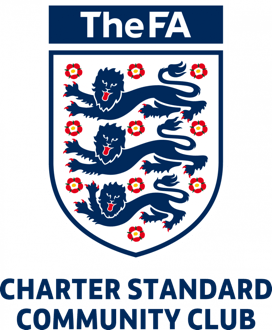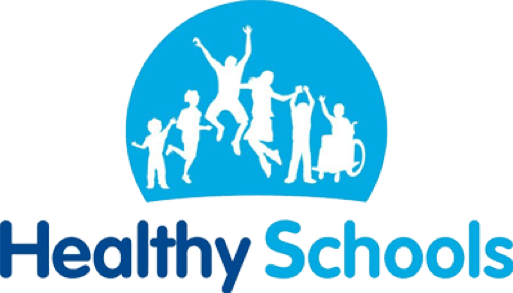School Curriculum
Our Curriculum
School Curriculum information is listed on this page. Parents or other members of the public can find out more about the Curriculum our school is following by contacting the Headteacher.
At East Ayton Primary School, we use the Twinkl Phonics Programme, which offers a cohesive and whole school approach to the teaching of phonics from the beginning of Class R to Class Two, with further materials available as needed for children in Key Stage 2. Children receive daily phonics lessons, which build on previous learning day on day to help them make rapid progress. Our daily phonics sessions are fun, involving lots of speaking, listening and games. The emphasis is on children’s active participation. They learn to use their phonic knowledge for reading and writing activities and in their independent play.
Alongside the phonics learning, we follow the Pearson Bug Club reading scheme from Class R to Class 6. We use this scheme for our guided reading texts and home readers. Children progress through the books and are encouraged to choose a range of texts to read.
At East Ayton Primary School, we are strong believers in the impact of art and design as part of a broad and balanced curriculum. It provides children with opportunities to develop and extend skills to express their individual interests and ideas, whilst also contributing to the development of the child emotionally, spiritually, intellectually and socially. We give our pupils the opportunity to explore and create art using a wide range of interesting media. Due to the cross curricular nature of our teaching, art lessons often link to, and extend the topic work done within classes or a particular artist. Have a look at our subject overview to see all the exciting areas we get to explore!
Our aims for this subject include allowing pupils to produce creative work, explore their own ideas, become proficient at drawing, painting and in art, craft and design techniques including printmaking, textiles and 3D modelling. They learn how to evaluate and analyse creative works using artistic language, learn about relevant artists, crafts makers and designers and begin to understand how art, craft and design both reflect and shape our history. See our policy and progression document for more detail on how skills are taught and developed.
At East Ayton Primary School, we are passionate about providing a high-quality computing education. We want children to know more, remember more and understand more in computing so that they leave primary school computer literate. With the increasingly digital society that we live in, we aim to provide our children with skills that will support them in such a society whilst ensuring that the basics of computer use and safety remain at the forefront.
Our aim is for the curriculum to teach children key knowledge about how computers and computer systems work, and how they are designed and programmed. Most importantly, we intend to provide pupils with a secure understanding of digital literacy, ensuring that by the time they leave our school, they are digitally literate as active participants in a digital world.
At East Ayton Primary School, we believe that design and technology should be an inspiring, rigorous and practical subject. We believe that high-quality design and technology education makes an essential contribution to the creativity, culture, wealth and well-being of the nation. Using creativity and imagination, pupils design and make products that solve real and relevant problems within a variety of contexts, considering their own and others’ needs, wants and values.
They acquire a broad range of subject knowledge and draw on disciplines such as mathematics, science, engineering, computing and art. Children are taught design and technology in a three-stage process – design, make and evaluate, covering the key areas of textiles, structures, mechanisms, electrical systems and food. Pupils learn how to take risks, becoming resourceful, innovative, enterprising and capable citizens. Through the evaluation of past and present design and technology, they develop a critical understanding of its impact on daily life and the wider world.
At East Ayton Primary School, we recognise reading to be an essential life skill, and are committed to the development of early reading and phonics. We are keen for children to develop their reading skills as early as possible and promote a love of reading. Daily phonics sessions begin in Reception and continue into Key Stage One, providing children with strong foundations and rich opportunities to develop their reading skills. At East Ayton Primary School, we use the Twinkl Phonics Programme, which offers a cohesive and whole school approach to the teaching of phonics from the beginning of Reception Class to Class Two, with further materials available as needed for children in Key Stage 2. Children receive daily phonics lessons, which build on previous learning day on day to help them make rapid progress. Our daily phonics sessions are fun, involving lots of speaking, listening and games. The emphasis is on children’s active participation. They learn to use their phonic knowledge for reading and writing activities and in their independent play.
We embed the children’s phonetical learning by also following the Twinkl Spelling programme throughout school. This enables the pupils to use a series of strategies for their spelling in lessons and in their independent writing.
At East Ayton Primary School, the heart of our curriculum is the drive to nurture a love of reading. We are committed to enabling our children to become confident, fluent and lifelong readers. We believe that reading is an essential life skill to enable children to understand and appreciate the world around them. To enable this, we enrich children’s learning through creative teaching activities which use engaging and inspiring books across a wide range of themes. Reading allows readers to adopt new perspectives, develop empathy and become more socially conscious. It is vital that we expose children to a range of texts that open their eyes to the diverse world around them. We encourage reading for pleasure for all pupils, recognising the benefits not only for reading outcomes, but for wider learning enjoyment and mental wellbeing. Alongside the texts that they are studying, each class has a book that is purely for enjoyment. Every day, the class teacher will read to the class to embed this love of reading. Alongside our phonics scheme, we follow the Pearson Bug Club reading scheme from Class R to Class 6. We use this scheme for our guided reading texts and home readers. Children progress through the books and are encouraged to choose a range of texts to read.
At East Ayton Primary School, writing is embedded in our curriculum to enable children to have a wide range of writing opportunities so they can communicate their ideas and emotions effectively. We aim to ignite a love of expressing and communicating ideas through an engaging, immersive writing curriculum drawn from quality texts, shared experiences (through school, local and national events) and all areas of the curriculum. Our writing curriculum is designed to ensure our children have a consistent writing journey; a build-up of essential skills to provide them with the platform to produce their best writing. It is essential that our teaching and curriculum develops pupils’ competence in these areas by providing children with the opportunity to write for a range of purposes, forms and audiences and across the curriculum to help ensure their writing is relevant and purposeful. We aim to support, enable and challenge our children to produce quality writing that they can be proud of, and aspire to develop a love of writing in all.
Writing Handwriting Progression Map
Writing Grammar, Vocabularly And Punctuation Progression Map
At East Ayton Primary School, languages are an essential part of a broad, balanced curriculum. Not only do they provide an opportunity to communicate more effectively with others; they also help children to understand what it is to be a global citizen. Learning a foreign language is a liberation from insularity and provides an opening to other cultures. A high-quality languages education should foster pupils’ curiosity and deepen their understanding of the world. At East Ayton Primary School, we aim to instil a love of language learning and an awareness of other cultures. We foster children’s curiosity and deepen their understanding of the world: all children should find joy in discovering another language and in sharing this with others. Our pupils develop the confidence to communicate in French for practical purposes, using both written and spoken French. It is intended that when pupils leave East Ayton Primary School, they will have the natural curiosity, courage and resilience needed to use the languages skills acquired during their time here and providing the foundation for learning further languages.
At East Ayton Primary, our geography curriculum aims to inspire in pupils a curiosity and fascination about the world around them and deepen their understanding of the interaction between physical and human processes. Children are provided with opportunities to explore and study our school and local area and understand the geographical features of Scarborough. We are committed to providing children with opportunities to investigate and make enquiries about their local area so that they can develop of real sense of who they are and what makes our local area unique and special. Pupils will also investigate a range of places to enable them to discover Britain and key locations around the world. Pupils gain knowledge about diverse places, people, resources and natural and human environments, together with a deep understanding of the Earth’s key physical and human processes. At East Ayton Primary School, our pupils are inspired to get out there and experience the world, its people and places.
At East Ayton Primary School, we inspire pupils’ curiosity to discover more about the past and compare their findings to their lives today. Through their work in history, children will know how periods of history link together with geographical locations as well as features influencing the development of civilisation and culture. Children study the history of their locality, Britain and the wider world. We aim to inspire pupils’ curiosity to know more about the past and encourage them to question why people interpret the past in different ways. We want to equip our pupils with the knowledge and skills to understand the complexities of people’s lives, change in the world and the societies around them. We believe that history is vital in providing children with the understanding of how the past impacts their future; it is our role as a school to ensure that our pupils experience a rich and relevant curriculum not just gaining knowledge of Britain’s past, and our place in the world, but helping them to understand the challenges of our own time, through studying the past and gaining skills for the future.
At East Ayton Primary School, we strive to ensure all pupils are provided with a high-quality mathematics education that provides them with a foundation for understanding the world, the ability to reason mathematically, an appreciation of the beauty and power of mathematics, and a sense of enjoyment and curiosity about the subject, as per the aims of the National Curriculum, 2014. As a school, we follow the White Rose Maths scheme and use their methods of calculation. These can use concrete resources, pictoral or abstract methods. Please see our calculation policy for more information.
Children are taught maths through fluency, reasoning and problem solving. We believe it is important that any type of calculation is presented within a real life context or given in the form of a problem to be solved. This not only serves to help build children’s understanding of the purpose of calculation, but also develops their ability to recognise what operations to use and when. Pupils in Years 3-6 use Times Table Rock Stars to further their multiplication and division knowledge. All pupils have log ins for use at home and school.
At East Ayton Primary School, our aim is to ensure that music is an inspiring and engaging experience which enables every child to develop their musical potential as well as an appreciation of the value of music that is deeply personal to them. Music is a universal language that embodies one of the highest forms of creativity. Our music curriculum engages and inspires pupils to develop a love of music and their talent as musicians, and so increase their self-confidence, creativity and sense of achievement. They are provided with opportunities to explore different musical instruments and develop their skills as musicians. Pupils are introduced to a wide variety of music spanning different styles, instruments, genres and time in history. They have opportunities to appreciate and perform music, as well as compose their own. This is achieved through stand-alone music lessons, as well as music being embedded in our everyday curriculum and school day.
At East Ayton Primary School, we aim to provide a high-quality physical education curriculum that inspires all of our pupils to succeed and excel in competitive and non-competitive sports and to enjoy the benefits to both their physical and mental health. Our pupils are provided with opportunities to experience a variety of sports and to compete in these in school and elsewhere. It is vitally important that we give pupils opportunities to develop the skills and knowledge to keep them safe, such as being able to swim. We also want to teach children how to cooperate and collaborate with others as part of an effective team and to understand fairness and equality of play to embed life-long values. Our curriculum aims to improve the well-being and fitness of all children at East Ayton Primary School, not only through the sporting skills taught, but through the underpinning values and disciplines PE promotes.
At East Ayton Primary School, our core values are embedded in our curriculum; we are committed to delivering an inspirational curriculum that develops confident learners. We aim to equip children with essential skills for life. Our PSHE (including RSE) curriculum, covers key areas which will equip children to make informed choices now and in the future around their health, safety, well-being, relationships, British values and financial matters. We aim to empower our pupils to become active and responsible citizens, responsibly participating in society around them. We are also passionate about our pupils developing the knowledge, skills and attributes that they need to protect and enhance their wellbeing, building the foundations in seeing each and everybody’s value in society and promoting strong and positive views of self. It is vital that we offer every opportunity to ensure that all of our pupils get the support they need to reach their full potential.
At East Ayton Primary School, Religious Education has a significant role for the development of pupils’ spiritual, moral, social and cultural development. It promotes respect and open-mindedness towards others with different faiths and beliefs and encourages pupils to develop their sense of identity and belonging through self-awareness and reflection. The principle aim of RE is to engage pupils in an enquiry approach where they can develop an understanding and appreciation for the expression of beliefs, cultural practices and influence of principle religions and worldviews in the local, national and wider global community.
At East Ayton Primary School, we deliver a high-quality science education which provides the foundations for understanding the world through the specific disciplines of biology, chemistry and physics. All pupils are taught essential aspects of the knowledge, methods, processes and uses of science and how science can be used to explain what is occurring, predict how things will behave, and analyse causes. Through building up a body of key foundational knowledge and concepts, our pupils develop a sense of excitement and curiosity about natural processes and events. They are encouraged to ask questions to further their understanding as we understand that children are naturally curious and we encourage this inquisitive nature throughout their time with us. Science fosters a healthy curiosity in children about our universe and promotes respect for living organisms and non-living objects. We believe science encompasses the acquisition of knowledge, concepts, skills and positive attitudes.
Year Overviews
To see the yearly overviews, please go to the Classes tab under Parents






